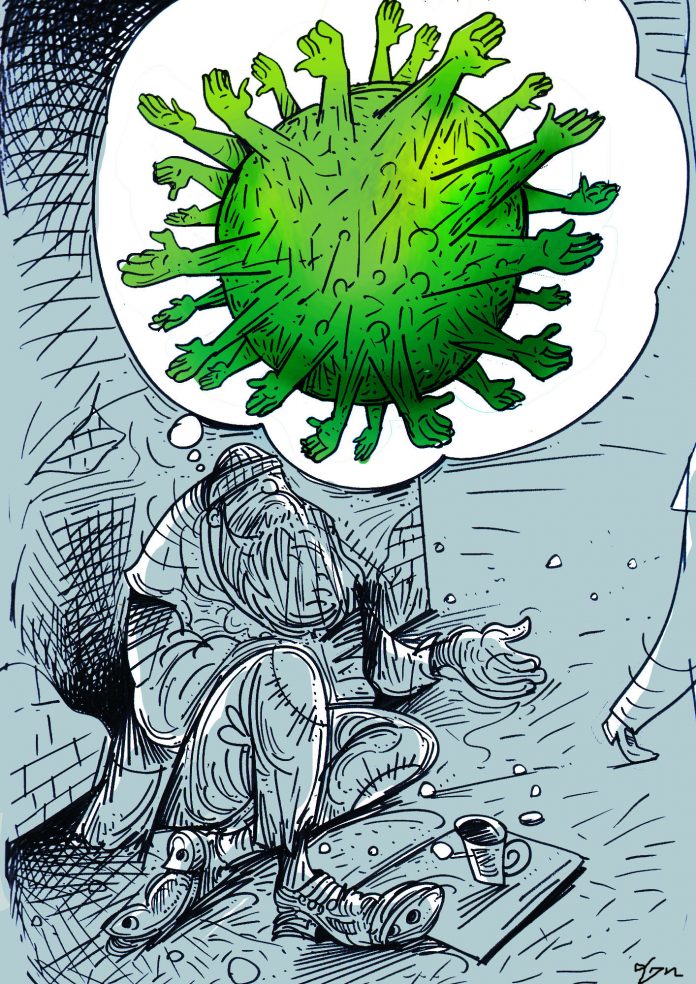(THIS ARTICLE IS MACHINE TRANSLATED by Google from Norwegian)
When large cash flows and strong interests are put into play in a global crisis, there is reason to be vigilant to ensure that the money is spent properly.
The corona pandemic is upon us and the authorities have never been so hard pressed for extraordinary grants and measures to deal with the health and economic crisis. Experience shows that the risk of corruption increases in crisis situations. The time pressure means that a dilemma may arise where the choice is to achieve results on the one hand and compliance with regulations and control mechanisms on the other.
Covid-19 has so far resulted in more than 499 dead and 800 million infected [per year]. June 9,9, ed.]. All countries are affected by this crisis and efforts to develop a vaccine have become a common interest with high priority.
vaccine Work
In April took World Health Organization (WHO) initiative for a global program for developing, producing and distributing vaccines that should be available to all (Access to Covid-19 Tools). The initiative was followed up by a large donor conference organized by the European Commission in early May and so far nearly NOK 85 billion has been promised. Norway contributed more than 2 billion at the conference, in addition to 13 billion for vaccine work over the next few years.
85 billion is a lot of money for an important purpose, and although the will is good and the vaccine race is well under way, there is a long way to go and many reefs in the sea.
Transparency International Health Initiative has pointed to some challenges related to the risk of corruption: First, good governance and coordination are a prerequisite for the funds not only being promised, but actually allocated for the purpose. Until the end of May, the European Commission is responsible for keeping an overview, but it is not decided who will follow up.
Healthy money or reallocation?
Another challenge is where the donor countries' money is to be taken from. Is it talking about fresh money or is it reallocation of aid money Who was meant for other important purposes? Recent weeks' budget negotiations in this country show that this is a relevant issue where much of the aid is now being reprogrammed to deal with the corona crisis.
Openness is a challenge in several areas of the program, as partnerships between donors and experts are established within the various parts of the program with a high degree of autonomy and the opportunity for direct funding. In this way, one can risk money going directly to an industrial enterprise without competition and compliance with procurement rules. The European Commission expects open reporting on the use of money, but it is not clear how this will be carried out or whether due diligence will be conducted to prevent any conflicts of interest between donor and partners.
The funds raised must therefore be programmed in such a way that everyone can afford a vaccine.
Lack of transparency
The issue of transparency also applies to test results and data. Lack of transparency increases the risk that resources will not be used efficiently and, in the worst case, waste on the development and purchase of medical technology that does not work or is harmful. The European Commission signals transparency requirements for publicly funded research, but there should also be transparency about privately funded research. The requirement for full transparency regarding the results of clinical trials from all research supported through this initiative must become clear, and practical reporting systems must be established to enforce the requirement for transparency.
An important premise for this WHO The initiated program is to ensure global and equitable access to the corona vaccine. The funds raised must therefore be programmed in such a way that everyone can afford a vaccine. This point was repeated three times by Erna Solberg in her speech at the donor conference. But it is unclear how this commitment to global equitable access will be implemented, and there is a great danger that those who need the vaccine most will not get it.
Civil society has an important role in holding stakeholders in the vaccine program accountable for its obligations in all phases of research, development and distribution of the vaccine. It was in this way a bad start that non-civil society representatives attended the donors' conference. Everyone looks forward to a vaccine against Covid-19, but we also need transparency, accountability and good control and governance mechanisms such as vaccination against abuse of power and corruption.
ALSO READ: When viruses go viral, about false information during the pandemic


